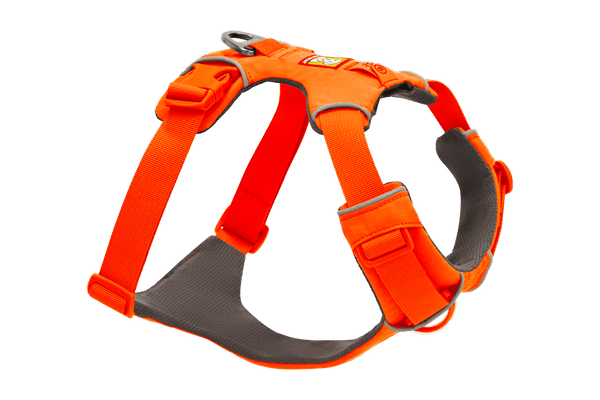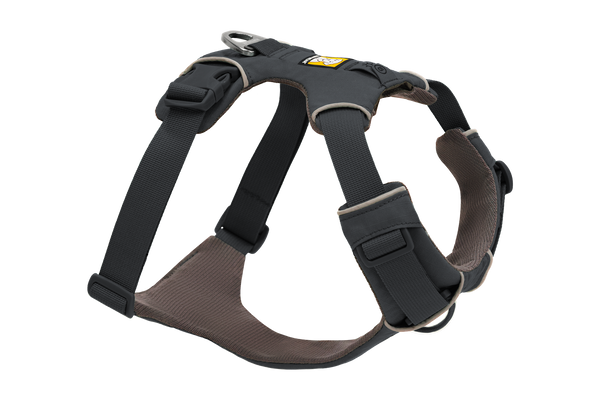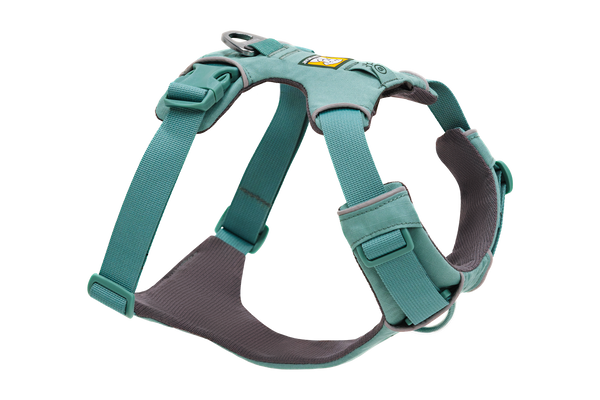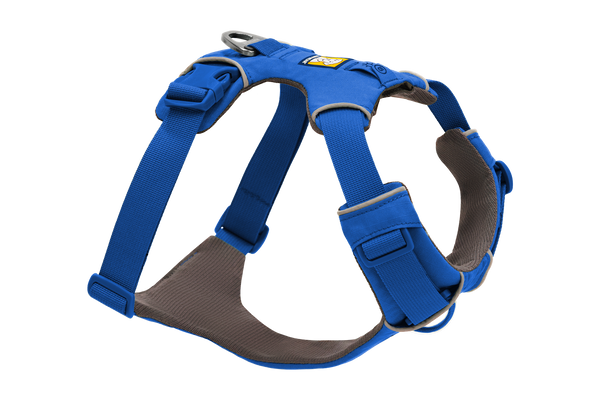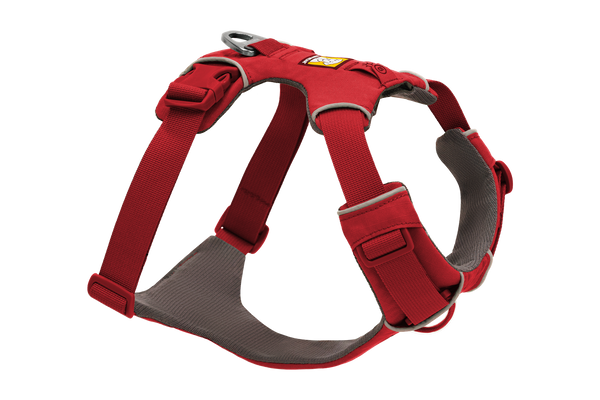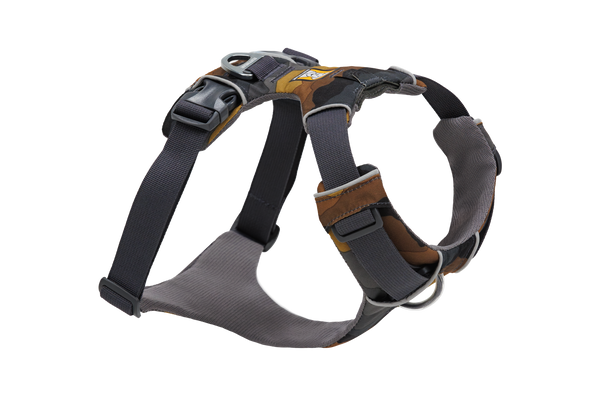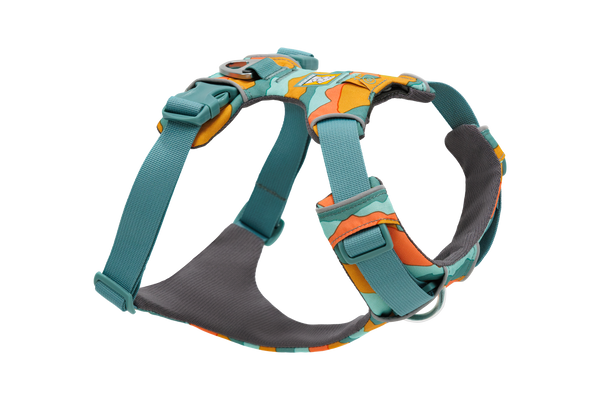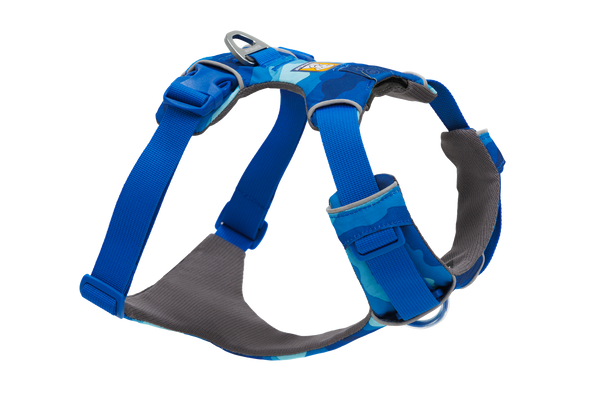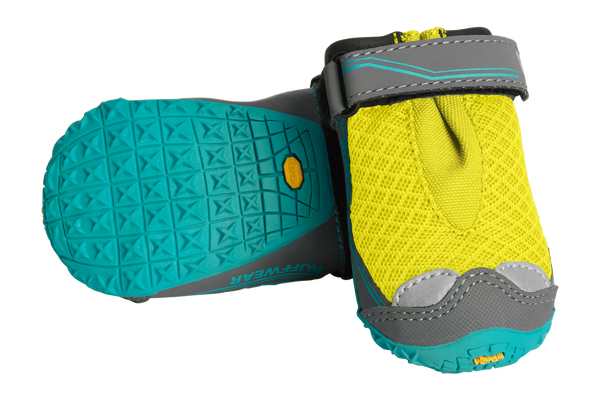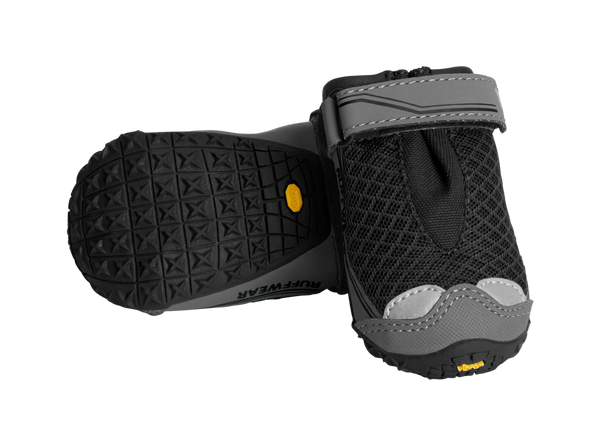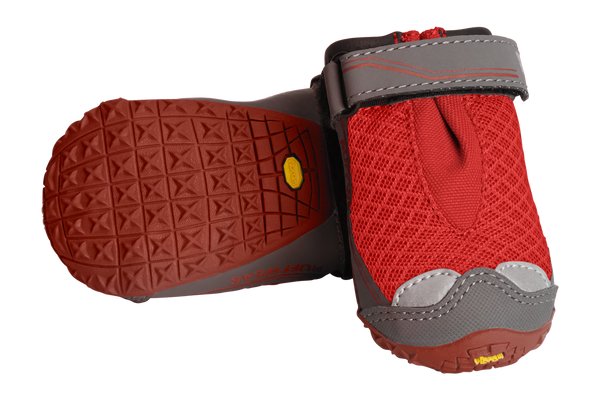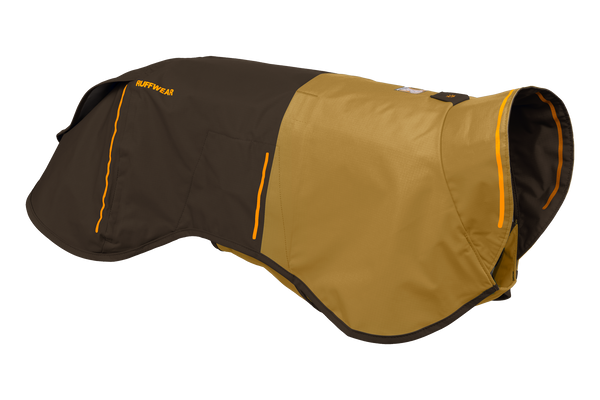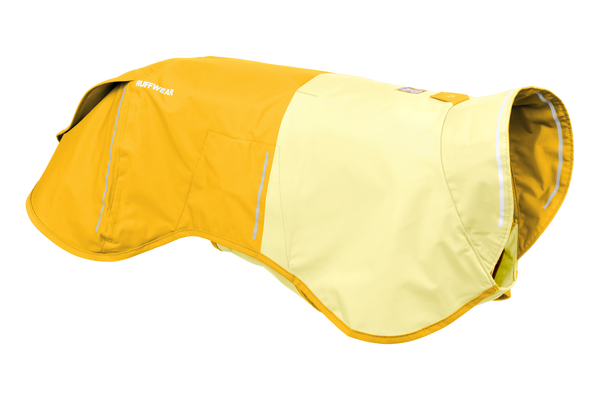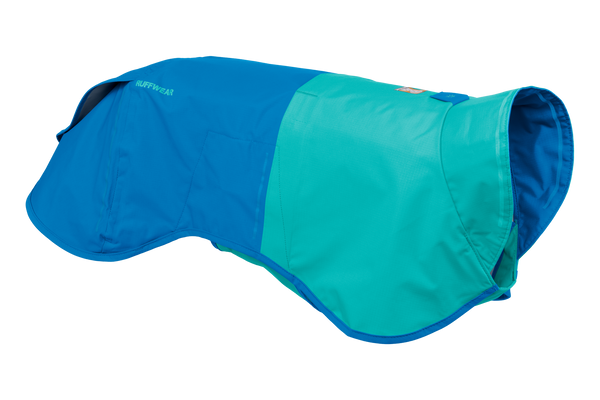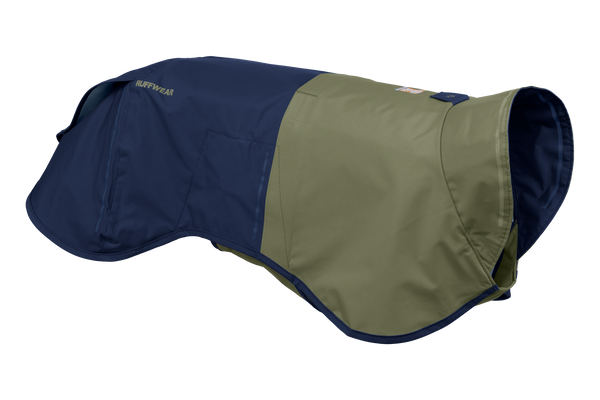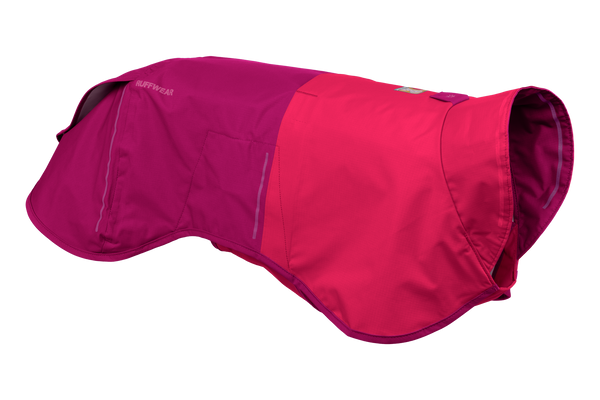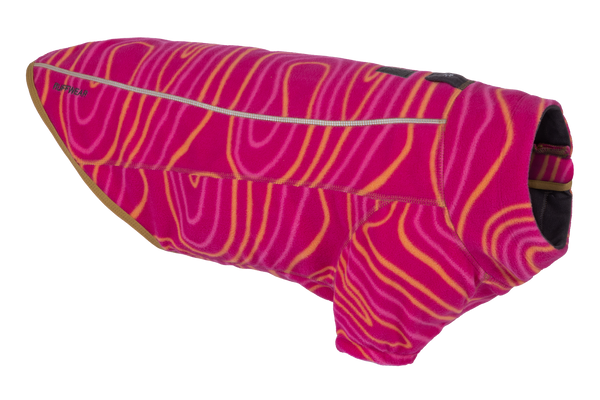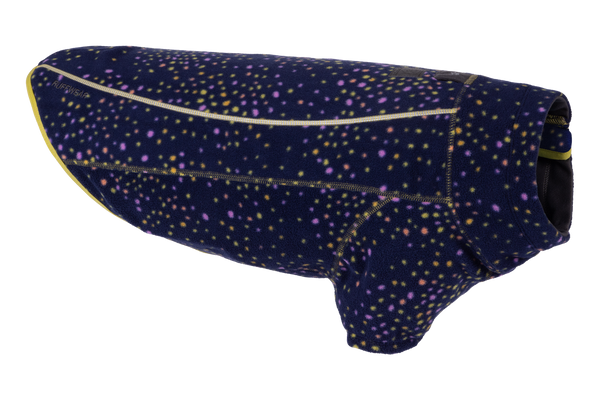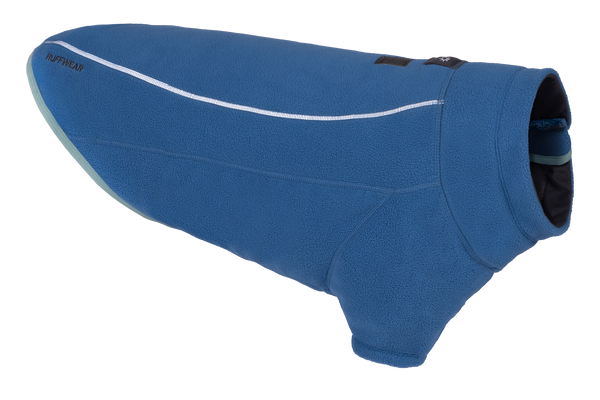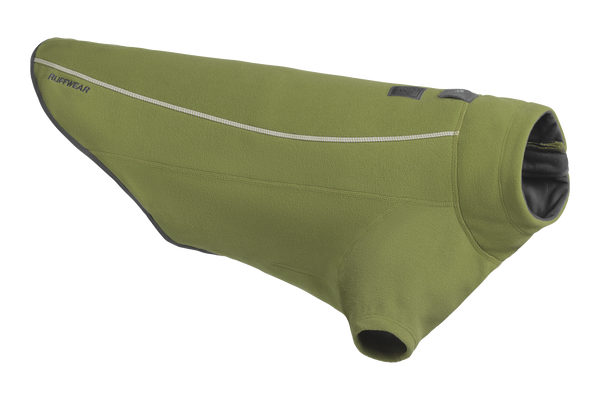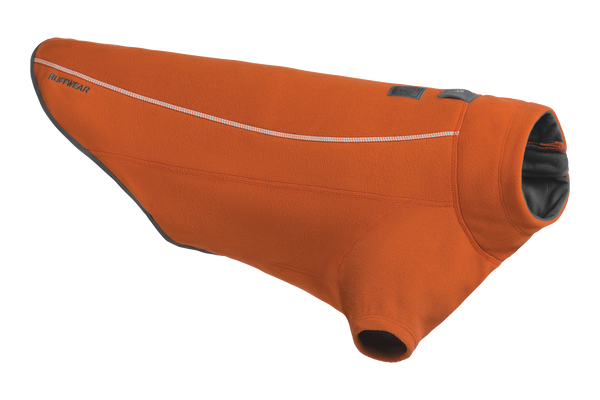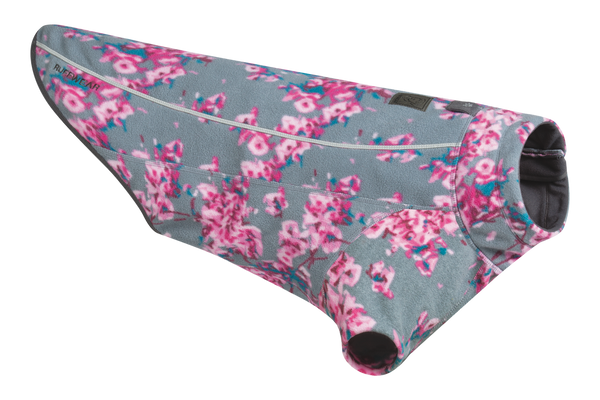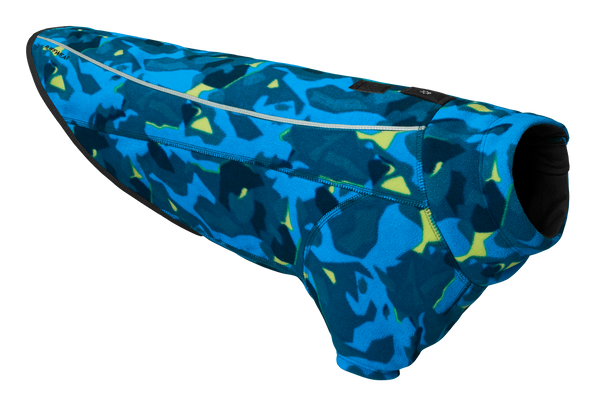Staying Cool the Rogue Dog Way
Rogue Detection Dogs are happy to work all day traversing plains, climbing up mountains, trekking through snow, and clambering over rocks and fallen trees, all with the expectation of playing with their ball – their reward for successfully locating wildlife scat.
Ruffwear proudly supports and partners with Rogue Detection Teams by providing gear to all of the dogs. Chances are, the Ruffwear gear you use is gear they've put to the test (through the wringer, really) in the harshest environments for days or even weeks at a time and provide valuable feedback to our product development team. They are a hard-working group of dogs and humans doing incredible things in the name of science and conservation.
We recently caught up with them and asked them to share how they use our cooling gear in the field as the dogs use their noses for science in hot climates. Bounder Jennifer Hartman had some great words and pictures to share with us below!
What are the Rogue Detection Teams' cooling gear of choice?It depends on the dog and the bounder! Hiccup has been known to sport both the Jet Stream Cooling Vest in Blue Lagoon, as well as the Swamp Cooler. Dio and Filson look sharp in the Salamander Orange Jest Stream. And Athena, Hera, and Scooby who are all long-bodied, like the Swamp Cooler.


Most recently our Rogue dogs have been working in the hot, dry, dusty desert locale of Palm Spings on avian mortality surveys at wind facilities. The work is important because it's helping to inform researchers and the clean energy industry what effect wind turbines have on migrating wildlife (specifically of the flying variety) in these windy corridors.
 [ When there is no shade available, the Swamp Cooler cooling vest is exactly what Rogue Athena appreciates to keep her cool and happy working in the desert sun.]
[ When there is no shade available, the Swamp Cooler cooling vest is exactly what Rogue Athena appreciates to keep her cool and happy working in the desert sun.]
We always carry the cooling vests on any of our summer projects which also includes fisher and marten work in California and Oregon and ungulate (hoofed animal) surveys in the northeast.
Why do the dogs and humans like the cooling gear?
Speaking just about the Wind Facility work for a moment... it's is hot there. Like really, really hot. The teams get up at 3 am to start surveys before the sun rises and we're typically done before noon, which is ideal, because as soon as the sun comes up, our efficiency goes down. 
We need to take longer breaks and odors don't travel as well because the heat actually suppresses odors closer to the ground. This means that the dogs have to work twice as hard to locate an odor. It's more challenging for the dogs to sniff for elusive targets in the blazing sun.
 [Bounder, Mairi Possion and Rogue Athena off to start a day of surveys, before it gets too hot.]
[Bounder, Mairi Possion and Rogue Athena off to start a day of surveys, before it gets too hot.]
That's why we need to ensure that our pups stay cool as well as hydrated for the surveys. The bounders, in addition to guiding the surveys, keeping the dogs safe, and being the dog's cheerleaders for the work, are also their water porters.

We keep the cooling vests in cold water overnight so that they are cold by the time they need the vests. We carry extra water into the field to dip the vests in, because the wind, in addition to turning the turbines, also dry out the vests. Because of the unique fabric, they stay wet for longer than normal fabric, which maintains a cool core for our dogs and allows our teams to conduct this essential wildlife service.
How does the gear help dogs do their job? Are they able to go further/go more places through the summer with the cooling gear?
Yes and yes! Without the cooling gear, we'd either not be able to do the work, or we'd have to design something to help them.
Actually, it's thanks to the Jet Stream as well as the Swamp Cooler, we can conduct this work year-round!!!
And actually, we have designed something that goes on top of the vests! We call it the SunShield. It looks pretty funny and makes our dogs look like wizards with a shiny cape, but when the sun beats down and heats up the sand, the dogs get hot both from the overheard sun but also the heat coming up off the ground.
Because our dog's health and safety are paramount, we designed the SunShield to help maintain the cool temperature of the cooling vests even more. It's like a personal umbrella or shade tree – which comes in handy in a desert with no trees. 
We only use the SunShield on particularly hot days, because the Jet Stream and Swamp Coolers overall allow our dogs to stay happy while out sniffing for clues.
Here are a few quotes that our teams have actually sent in our group texts or field updates on past projects:
Palm Springs Wind Facility Project, Boudner Mairi Possion: "Swamp coolers worked really well yesterday! The wind was too strong to use the sunshield (18-22mph) so it was great having something else to shield their backs and to keep them cool."
Marten Project in Oregon, Bounder Jennifer Hartman: "The dogs are handling the heat really well (high 90s in September!!). I don't think we could get through the days down here without the swamp coolers or the boots. We are all usually incredibly hot by our 10am check-ins."
Bounder Jennifer Hartman about a unique usage of the Swamp Cooler on a remote field project where getting to a vet was not as easy as jumping in a car and Detection Dog Scooby had a sore leg: "'Iced'" his leg 3 times a day by wrapping it in a swamp cooler soaked with cold water."
For the Wind Facility Project specifically, the bounders all wear hard hats and orange vests (safety regulations) as well as chaps, otherwise known as snake guards. There are a lot of thorny cactus, spiky bushes as well as snakes so the guards help protect against some of these desert denizens.

The bounders also carry lots and lots of water. We survey several different plots a day and return to our cars in between, to resupply our water. Instead of a typical backpack that we carry on our fieldwork in the forests, most bounders have opted for the hip pack set-up. Any human cooling vests you can design? ;)
 [Bounder Rita Santos and Rogue Hera sniffing for endangered Crau plain grasshopper work, which lives only on the Crau plains in the South of France! The field sits is open, grassy and, well... HOT, so Hera really loved her Swamp Cooler. She's sporting her Web Master in this photo, but it shows how open the field sites are and why we need gear like the Swamp Cooler.]
[Bounder Rita Santos and Rogue Hera sniffing for endangered Crau plain grasshopper work, which lives only on the Crau plains in the South of France! The field sits is open, grassy and, well... HOT, so Hera really loved her Swamp Cooler. She's sporting her Web Master in this photo, but it shows how open the field sites are and why we need gear like the Swamp Cooler.]
To learn more about Rogue Detection Teams and the incredible work they do, check out their website here and follow them on Facebook, Instagram, and Twitter.
